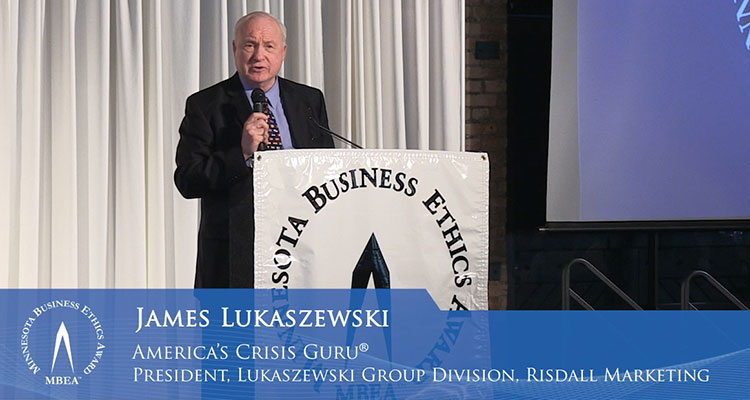For 22 years I was a member of the Public Relations Society of America’s National Board of Ethics and Professional Standards (BEPS). The Board’s purpose is to educate, inspire, motivate and demonstrate appropriate ethical behavior and explore ethical dilemmas. I remain active, working with BEPS as its first emeritus member.
BEPS main targets are practitioner problems, public relations students and younger practitioners. And while there is interest by students and younger practitioners, my experience has driven me to consider a different Ethics Education approach that turns out to be much more challenging.
Working across a broad range of ages, beginning around mid-to-late teenager status to extremely senior, highly educated and successful leaders, has taught me two very powerful truths, which are the major drivers of this presentation:
- The highest level of ethical clarity in a person’s life seems to occur between the ages of 19 and 26. This seems to be a time when an individual knows everything more than anybody else, including their parents. The world seems to be largely black-and-white. Parents enter the NPR zone (not presently relevant) around age 15 for girls and 17 for boys. . . Boys are always slower.
- It is between the ages of 30 to 49 -- that time when one’s career begins to move ahead, even take off -- that they begin moving through a period of incremental de-ethicization. That is, regularly making small compromises to facilitate the personal advancement process. It seems as though one’s career progress requires that many prior clear and sharp decisions made are now gently, minutely and relentlessly modified.
The lesson for me has been that the time for extraordinary re-emphasis and re-clarification of ethical behavior principles and ideals is in that midlife range. I believe that it is at this stage that leaders need to rethink and redirect the ethical emphasis to help those now in career acceleration mode better preserve, protect and defend their ethical sensitivities rather than allow the corrosive, incremental de-ethicization that occurs during this time period. This is among the biggest challenges to leadership.
It is the most important work of leadership. I’m speaking to every senior executive in this room when I say that this is your personal responsibility, the protection, support and defense of the ethical values of these up-and-coming executives.







